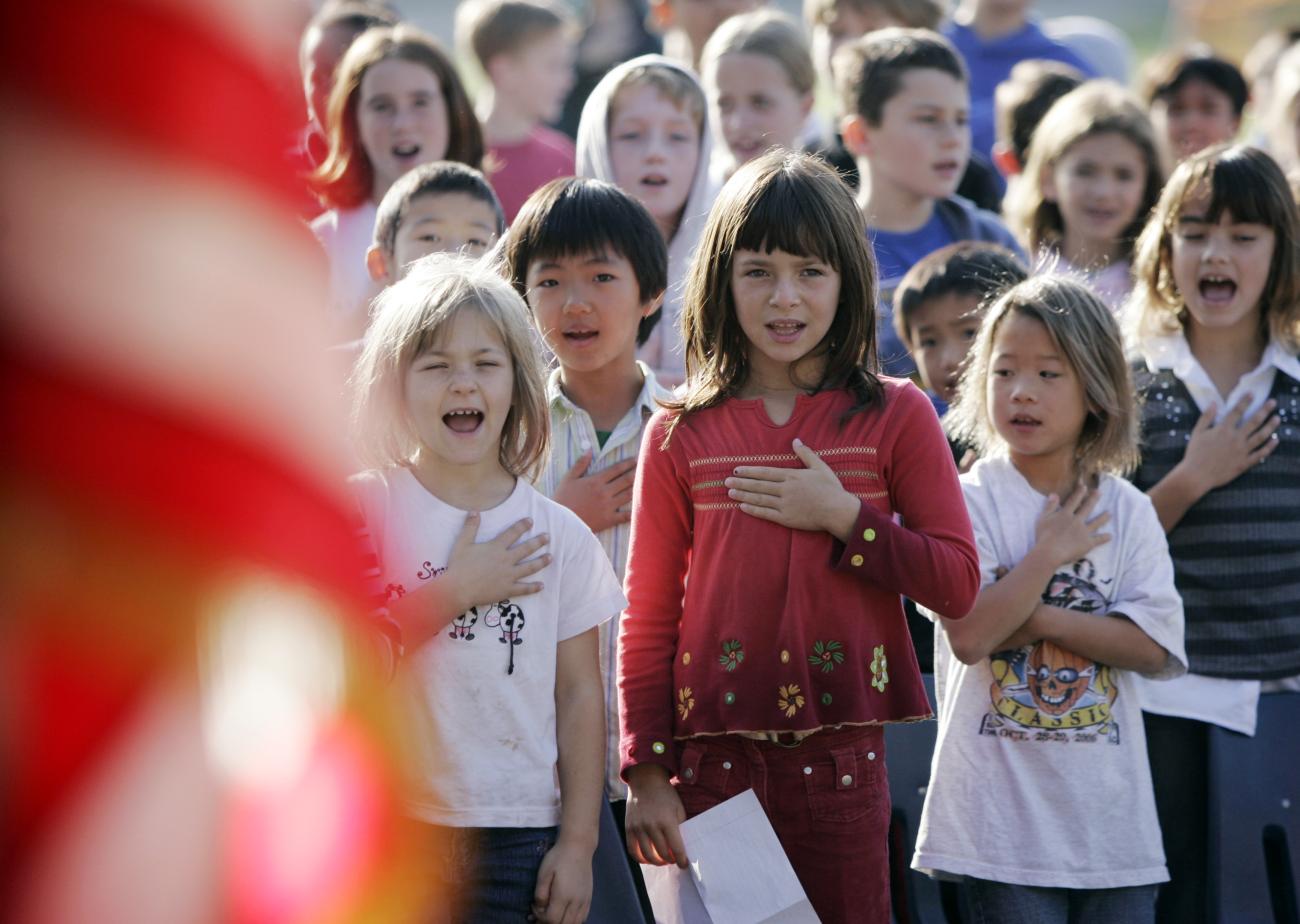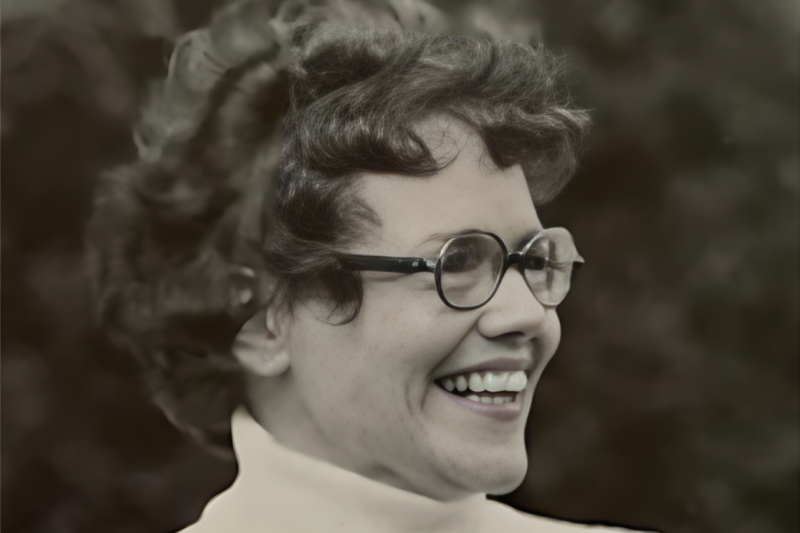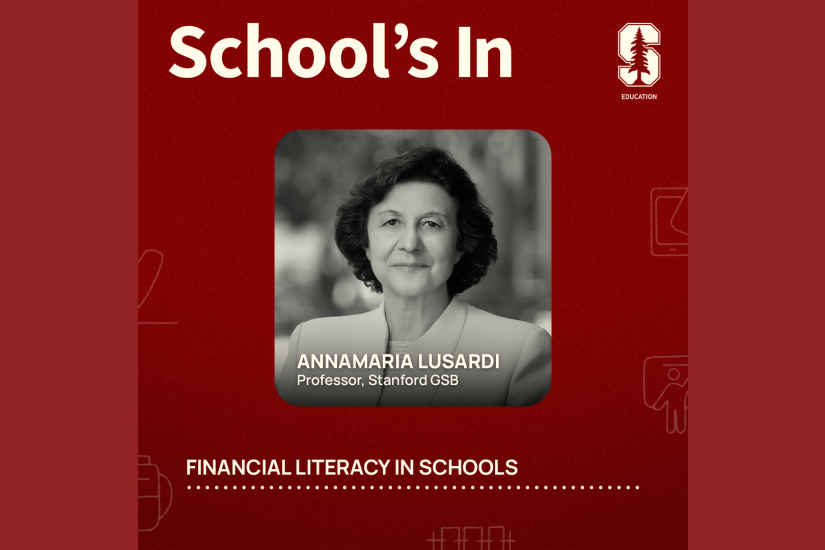
Schools not inspiring students to participate in civic life, Stanford scholar says
With its focus on professional skills and the know-how to pass state tests, the U.S. educational system is falling down on its job to help young people become vital members of society, according to a new report co-authored by Stanford Graduate School of Education Professor William Damon.
The report calls on schools to take greater responsibility for civic education that exposes students to the values, skills and knowledge necessary for full participatory citizenship.
"It's an urgent issue if this country wants to succeed as a democracy," said Damon, who directs the Stanford Center on Adolescence, which published the report with the Center for Multicultural Education at the University of Washington, Seattle. Heather Malin, a research associate with the Center on Adolescence, is also one of the co-authors.
The report, "Youth Civic Development and Education," describes the languishing state of civic education in the United States and offers solutions for revamping it. It was drafted by leading thinkers in civic education from across the political spectrum who gathered at Stanford earlier this year for a conference on the topic. The document was recently posted online, and the authors plan to present it at a number of conferences next year, including events at the University of Washington and UCLA.
The report says that civics involves more than just facts about democracy, citizenship, government and global concerns. Curriculum must also incorporate a commitment to instill in students democratic ideals and methods to help them participate constructively in civic affairs and political process.
"A common grounding in the history, values and workings of the American constitutional tradition is essential to ensure access and dedication to citizenship for all students in our increasingly diverse society," the report says.
The paper recommends that curricula for civic education should be centered on fundamental concepts that shape American democracy and civic life. These include the good old core values of the U.S. civic tradition, such as liberty, equality, opportunity, justice, independence and interdependence.
But the curricula must also impart an understanding of power — who has it, how you get it, and what it means in a self-governing society — as well as awareness of contemporary global civic issues.
Moreover, the report contends, educators in the civics arena need to stop shying away from issues that may involve political and ideological controversy. It urges educators to get their hands dirty: Authentic engagement for students means experiencing the nitty-gritty of democracy and learning to address it constructively.
The report suggests that schools strive to place the most essential and challenging concepts of American democracy at the heart of the civics curriculum, encouraging discussion and debate about even the most contentious issues.
"Democracy in practice is emotionally exhilarating and often conflict-ridden. Civic education should reflect this," the report says.
To help students navigate this territory, schools must get better at promoting — in and outside the classroom — pro-social virtues such as tolerance, open-mindedness, truthfulness, responsibility, diligence, self-control, empathy and cooperation, all of which are needed for constructive resolutions of political arguments through civil communication.
Going beyond instruction emphasizing the memorization of dates and historical facts, robust pedagogy for the "new civics" should include the use of primary documents, case studies of contemporary civic leaders that young people can relate to and interactive, participatory, assignments and activities.
Opportunities for involvement in political life form an integral part of such a learning environment, along with the service learning and volunteering already found in many schools.
"This revitalized view of civics is all about inspiring and motivating kids to internalize the values of democracy and get involved,” said Malin. “Learning about how they can be part of the power structure and influence society is empowering for them.”
In addition to Damon, other experts whose ideas form the backbone of the document include: Frederick M. Hess, director of Education Policy Studies at the American Enterprise Institute; Eric Liu, civic entrepreneur and author; Carole L. Hahn, professor of educational studies at Emory University; Diana Hess, senior vice president of the Spencer Foundation and professor of curriculum and instruction at the University of Wisconsin, Madison; James A. Banks, professor of diversity studies and founding director of the Center for Multicultural Education at the University of Washington, Seattle; Rachel Moran, dean at UCLA School of Law; and Marcelo Suárez-Orozco, dean at the UCLA School of Education and Information Studies.
"They represent a range of ideologies, but they all agree on what's important when it comes to educating our young people," said Damon.
Ultimately, the philosophy underlying the report is that teachers themselves are the experts.
“We advocate for them to set up collaborative groups to explore and implement the bigger ideas that are being proposed," said Malin.
Damon said that he hopes that the document will also be used as a jumping off point by anyone with a role, interest or stake in civic education, including policy makers and parents.
Funding for the report was provided by the S. D. Bechtel, Jr. Foundation.
___
Marguerite Rigoglioso frequently writes for the Graduate School of Education.
Related information:
Researchers examine the secrets of successful young entrepreneurs
Damon on Steve Jobs: An Educator and His Education



